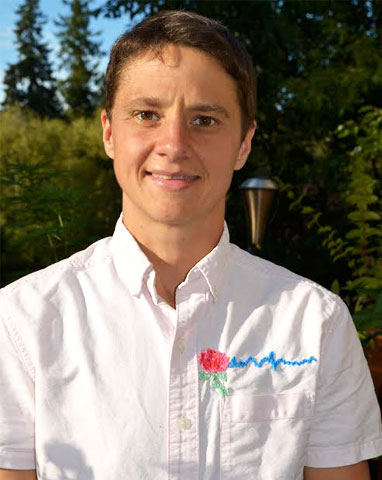
How to Transform (or “Transmutate”) Negative Energy into Positive, Healing Energy
I tricked you (not really). The title of this post is ambitious, as if I have all the answers, but the truth is that I am searching for this “holy grail” of personal and spiritual enlightenment, as well. I also think no one has the solution, so it’s not actually a trick – it’s just a hope, a faith that it can be done, that one can take negative energy that either originates from inside of us or even from outside of us, maybe even directed at us, and transform it (the new age community says, “transmutate”, and I’m not exactly sure why except their love for the word, “alchemy”, maybe because it’s not a science but more of a pseudoscience?) into positivity, light, and healing energy.
As a counselor, am I supposed to know how to do this? As a healer, aren’t I supposed to be doing this already? Maybe. I don’t think there’s ever a definitive, all-encompassing answer, at least one that’s specific and practical enough to actually be of use. I mean, one could say, “love it all” – and, yes, people do say that, in fact. Someone that I really appreciated last year as I was dealing with the fallout of my divorce who wrote a book, How to Be Loving, says “love it all” throughout the book. It helped me at the time…but the reality is that there are specifics in life that we are trying to get through, and it’s not enough to say, “love it all“! Ok, I hear you, but…what do I do when someone’s attacking my reputation and that’s affecting my ability to make money and my livelihood? How can I love that?!? How can I transform that?!? Or what about my (ex) wife who kicked me out of my home and left me alone without a partner, a family, a house, and our dogs to retreat to my elderly parents’ basement? How can I love that?!? How can I transform that?!? There are more examples…of course there are many more!
So it’s taken me a year of work to get here, but I do see the light at the end of the tunnel. Maybe I’m opening into that light, in fact. I don’t want to speak too soon about that, but it’s been since around the winter solstice (December 21/22, 2023) that I’ve been starting to feel lighter, more stable, and more healed, so I feel confident in thinking that maybe I have made it to the other side at this point. It’s good that I’ve decided to have “no contact” with my ex-wife for at least a month, probably longer if she lets me. There’s a lot of healing that can come when you decide to remove the knife from your heart. That sounds dramatic, but I’ll leave it because divorce is dramatic.
Paul Simon said it well in his song, Graceland – “she says losing love is like a window to your heart/everybody sees your blown apart/everybody sees the wind blow”. Divorce feels like a murder scene splashed all over the newspapers. You can’t hide from it; it feels like a failure everyone can see. And yet…about half of first marriages end in divorce, then the statistic increases for 2nd marriages and so on, so why does it feel so shameful to be divorced when it’s so common? But we know why…it’s embedded in our society, derived from religion – even if it’s not seen as a sin, it’s often seen as breaking a sacred vow between you and God – I’m a counselor, I know better! I would never shame anyone else who got divorced…but I still feel it inside me. I wanted to hide under a rock, and I kind of did for a whole year. In some ways, I still am hiding…but not necessarily on purpose now. I just decided to get off social media, essentially for good.
Back to the point: How do we transform negativity and low vibrational energy into healing positivity, light, and love?
First, I think, you start with your own negative energy that resides inside of you. It’s critical not to pretend it isn’t there, and not to run away from feeling it. In fact, make sure you feel it, asking what it’s trying to tell you. I am not the originator of this idea that our emotions are signals that are trying to get our attention. From a purely biological and evolutionary perspective, this idea makes sense. Consider emotions like fear and disgust – they’re warning you to stay away from something that is likely to hurt you or is already hurting you. It is protective; it is meant to signal you to retreat (or “withdraw”, using the preferred word in studies) from something or someone. Joy and happiness are feelings that signal you to move closer, to attract you towards something or someone (or “approach”). Therefore, when you feel something, it’s important to figure out what it’s trying to tell you, and if that is congruent with what is actually happening. This latter part (about congruency) is also crucial because, for many people, their emotions do not match with the reality around them, and are actually created by memories of similar yet different experiences, most likely from past traumatic experiences. This is one of the long-lasting effects of trauma, by the way – it distorts your perception of reality. Even in these instances, though, your emotions are telling you something – maybe not something accurately about the present, but something about the past that you have either unresolved, unprocessed, or about which you just need to have an awareness.
The act of feeling your emotions fully to their completion is the primary act of transformation. Even anger, when felt fully, will inevitably reveal the child (or “ego”, or whatever you want to call it – our innermost, naked, child-like self) crying out beneath it for love. It can only be resolved and completed when that child is loved, and that love can only come from one place to truly resolve it – from within, from the self, from the deep reservoir of infinite love that we are made of, available to every single one of us at all times, albeit seemingly hidden much of the time. Even when you are given love from an external source – like a mother, a friend, or a lover – you need to accept the love in, and that requires that you love yourself enough to accept the love from another. Let’s be clear and honest, though, that these harder feelings don’t go away forever once felt one time – they can come back over and over, and sometimes in quick succession. It’s still important to allow yourself to feel them through, over and over again. And yes, that means you need to keep loving yourself each time, while again and again that feeling of self-love fades and then the other feelings come back – over and over. It’s like the ocean waves hitting the beach – sometimes it can feel like you’re being hit with a constant barrage of huge stormy waves, one after the other, and like you may even drown…but you won’t. Just keep going because it will inevitably calm down. That’s the one thing you can always count on – that things will change. And this pattern of feeling your emotions is completely normal. Then sometimes it’s not like that and that’s normal, too.
How do you know when you’ve completed feeling the emotion? Usually you come back to a homeostatic state, typically a relatively calm state. Your breathing returns to normal, the tears run dry, you might even be tired if it was a particularly agitating emotion like anger or panic or a particularly intense crying session. If allowed to run its course, feeling the emotion typically doesn’t last more than a few minutes. You can test this out by timing yourself the next time you have a big emotion coming on – set your timer and allow yourself to just feel it to completion. My counselor says to try not to ‘egg it on’ by adding more thoughts to it over and over…and I realized that if I didn’t have any thoughts at all, my big emotion would pretty much go away, but that didn’t always feel right, either. So maybe there’s a happy medium? Maybe allow yourself to think the associated thoughts enough until you get to the point where you can’t do it anymore, and maybe then don’t ‘egg it on’ further? That might be hard, but I think there has to be a way of gauging when it’s just becoming an unproductive rumination and when it has actually helped to push through the feeling.
For me, almost all of my heavy, “negative”, emotions end up with me crying – usually balling – my eyes out. Certainly sadness does this, but so does anger and anxiety, fear, shame, etc. I always end up crying and crying. Before I got divorced, it had been years – maybe even over a decade – since I had really done a lot of crying, and I really didn’t cry that easily anymore. I would say, “I’ve cried so much in my life – enough for many lifetimes – that I don’t need to cry anymore”. I thought I was pretty much done with it, and maybe taking testosterone was also making it so I couldn’t cry as easily anymore (there’s actual research showing that people with more testosterone cry less). Suffice it to say, the separation and divorce reminded me that nope, I’m not done with going through periods of crying/balling all the time. What I am done with, though, is denying myself the opportunity to feel my feelings fully when they come up.
Ok, there are caveats to being able to feel your feelings fully at that very moment they may start to come up. On a practical level, we all have these – such as having them come up while you’re at work or in a meeting or driving a car (or doing something else that would be dangerous if you didn’t keep paying your full attention on it), etc. First, I will say that, yes, you can put the feelings on hold, temporarily pushing them away so you can focus on what is at hand – they call this “compartmentalization” in my field. However, there is a danger in doing this too often, and especially if you get really good at it. But let’s cover the best case scenario first – the best case scenario is that you push it away only temporarily, but once you are available – such as your client leaves and you have at least a 10 min break until your next client or meeting – then you allow yourself to come back to that feeling and really sit with it and feel it. But now let’s cover what happens if you don’t do that. The next best thing is that the feeling/emotion will come back to you at some point on its own – this happens all the time. The problem with this is that it usually doesn’t come back with the same level of intensity or in the same “innocent” way – it’s usually worse, or compounded with other feelings that had been pushed away, as well, making it a complicated mess that requires more time and detangling to process. The worst case scenario is that the feeling/emotion gets locked away for long-term storage. This happens for people who become experts at not feeling their feelings. They have all sorts of reasons why they say they don’t have the time or energy to actually feel their feelings, and then they lose the ability to do it. Unless they end up digging them back up someday through trauma therapy, EMDR, neurofeedback, etc., what will happen is that the feelings/emotions get stored in their body and begin to eat away at them. They have health problems, typically auto-immune-related that often become chronic. This, of course, is in addition to mental health issues. All of it is related to neuroinflammation, and I will have another blog post about that soon that I started writing in 2019. This is a warning: DO NOT GET GOOD AT IGNORING, DENYING, OR PUSHING DOWN YOUR FEELINGS/EMOTIONS. It will kill you.
The good news is that even if you do get good at ignoring, denying, or pushing down your feelings/emotions, if you decide to change that to get good at feeling your feelings again, you can. There are a multitude of different therapeutic modalities that can help you make this change, and neurofeedback is one of them. The most important aspect is making the decision to make that change, and having the faith that it can be done – but even if you don’t fully have that faith yet, just making the decision to try is faith enough.
You may not know that you’ve made this transformation of the negative energy inside of you into positive, lighter, more loving energy until after you’ve been doing it already for awhile. You also won’t ever be finished with it, so don’t think that you’ll wake up some day and suddenly not have any negative energy to have to process inside of you. Although, I’ll concede that maybe the Dalai Lama or Ghandi or Mother Teresa and the likes of people like them may get to a point of not feeling any negative energy inside of them, although I really doubt it. I really believe that dealing with our own internal negative or dark or heavy energy and emotions is an inherent aspect of the human experience. So if you don’t have that, then you are not human, and you are no longer relevant to the human experience.
So here’s the summary of how I believe you can transform the negative emotions and energy inside of you into positive, lighter, more loving feelings and energy:
1 – notice your feelings/emotions
2 – figure out what they’re trying to tell you, including if they’re relevant to your current circumstances or if they’re triggered by a trauma experience that you need to process or just be aware of.
3 – feel the feelings/emotions fully, to their completion
4 – self-soothe by allowing yourself to feel loved – by yourself, by the universe or god or whatever you want to call it, by someone else, etc.
- and there you go, you’ve transformed it.
- repeat as many times as necessary, knowing that the repeats will slow down and you will feel better.
Taking it a leap further, how do we transform externally-derived negativity and low vibrational energy into healing positivity, light, and love?
Currently, this is what I’m working on. I assume this is what people like the Dalai Lama and Mother Teresa and Jesus (and his Mother Mary) were particularly good at. Does that mean I think I could be the Dalai Lama, Mother Teresa, or Jesus (if he existed, but I’m trying not to offend – let’s just talk about him as if he did and that he was at least somewhat as he’s been described, but also assuming he was a human being, too, like the rest of us)? Yes. The answer is yes. I think we all can be like them if they were human. Do I think I am? No, not at all. My ex-wife probably wouldn’t have divorced me if I was. Or maybe she would’ve for a different reason – maybe I would’ve been too boring, in that case, but who knows. We don’t get much of an idea what kind of personality Jesus had – maybe he was a pretty cool guy, like King Missile sings in their song, Jesus Was Way Cool.
My intuition says that transforming externally-derived negative energy is a lot like transforming internally-derived negative energy. What often happens when someone slings their negativity at you – by yelling at you, saying something mean and hurtful towards you, physically hurting you, or even ignoring. dismissing, or neglecting you – we absorb that energy and are hurt by it. Then, the worst part is that many of us turn around and give that negative/dark energy back, either to that same person or to another person or another being (maybe even an animal or pet), or even sometimes to inanimate objects (such as punching the wall or kicking or breaking something). This is a type of transference, which is not quite “transformation”, but it does move the energy, just not in a positive way. Obviously, this is not the best way to deal with externally-derived negative energy….so how do we deal with that energy in a positive way?
Well, for the last few months, I’ve been adding a little addendum to my morning meditation where I do a little “prayer” to ask archangel Michael, who I learned is the archangel of protection, to “pour [his] blue light of protection onto me”, filling my auric field, and protecting me from negative energy from the outside coming in and hurting me, as well as protecting me and others from the negative energy inside of me from hurting me and others, but supporting me while I excavate such negative energy, and transform it into the light to empower and uplift me, and then be released. It dawned on me recently that maybe I could also consider doing that transformation with the externally-derived negative energy that I’m asking to be protected from. But I do think that the first step in that process is to ask to be protected from it – do this before you try to transform it.
By the way, we do need to ask for protection. We need to ask for help when we want it. The gift of free will means that we are not automatically given help or protection or guidance in order to allow us to have that free will…but if we want help, protection, or guidance, we can have it (to the extent that it doesn’t interfere with our pre-life contracts and the goals set by our higher selves); we just need to ask for it. This is important. Many people who have had a spiritual experience (such as a Near Death Experience) report back that this is all they needed to do…but until they asked for that help, they didn’t get it.
I’m still trying to figure out how to transform the externally-derived negative energy, which is why I think I need to continue to ask for protection from allowing it in for me to absorb. However, part of me thinks that the transformation may require me to allow it in – at least to some degree – but to then transform it into the light rather than into negative energy that I now direct out towards someone or something else. I’ll be clear, this is risky. It’s high level spiritual transformation to be able to do this, and it’s not for everyone. In fact, it may not be for most people – hence, why most of us are not the Dalai Lama, Mother Teresa, or Jesus. The risk, of course, is exactly what happens most of the time when we are hurt – we sling that hurt right back at someone or something else. Therefore, I think most people will do best to just ask to be protected from it altogether without attempting to transform it. To be fair, it really isn’t your job to have to transform someone else’s negative energy for them. And…even if you can, it doesn’t mean they will subsequently transform their negative energy, which is a huge caveat and why it may not be worth attempting at all.
Ok, I thought about it more over the weekend, and it hit me. Yes, transforming externally-derived negativity and low vibrational energy is a lot like transforming that which is internally-derived. However, there is a key aspect that is different: it is not all ours to process. Again, the first step is to recognize how you feel, but not necessarily jump into feeling it quite yet. Next, it’s important to figure out what that feeling is telling you, and if it is yours or if it is someone else’s feeling, really. For instance, maybe someone yelled at you, calling you a name, because you made some sort of mistake (like you left a mess in the kitchen that you forgot to pick up). You feel hurt; the name-calling was mean – that was theirs – but the mistake, ok, yes, that is yours. The hurt is the mixture of the name-calling and the embarrassment (or even the shame) of making that mistake. In this instance, allow yourself to be protected from the hurt of the name-calling because that is theirs and it hurts them, too, but you can’t see that immediately; but then you can allow yourself to process the mistake that you made, and the embarrassment that you feel for making that mistake. In that, feel that embarrassment – or, even, the shame – and allow yourself to complete that feeling where you self-soothe and feel love for yourself, in the end, forgiving yourself for that mistake. You may even have the calling to apologize for the mistake to this person, if they are receptive, and maybe work on how to avoid it again in the future – but that isn’t a necessary part of this process (but it can be part of the apology or self-correction). Self-shaming, on the other hand, is counter-productive and will not allow you to process through to the end. It is important to remember that you are human, and making mistakes are part of being human, and they are the primary way in which we have the opportunity to grow. It is important to allow yourself to be human, and to forgive yourself for making mistakes, particularly when you use that mistake for self-growth.
The truly advanced part of the transformation is here: for their part, where they called you a name, you can send them compassion (i.e., love). Here is why: when someone shoots daggers at you, what they’re really doing, is shooting daggers at themselves, but stabbing you on the way, as well. That negative energy is not leaving them, it’s actually multiplying as they send it towards you. They aren’t doing it because they know that, they’re doing it because they don’t understand this fact yet. They’re doing it because it’s an immature survival instinct that is inherent to the mechanisms of biological evolution. The problem is that it doesn’t achieve what they’re hoping it could achieve – which is to get rid of that negative, low vibrational energy inside of them. So if you understand this, and you are able to not absorb that particular aspect of their negative energy, then you can see it for what it is and see them as the hurting child that they are being in that moment. And just send them compassion (and maybe some forgiveness, as well). You don’t need to hug them (in fact, in many cases, they won’t accept your hug or other offerings of affection), but you could just sit with them and tell them you love them and you’re sorry that they’re hurting. You could say, “I love you and I’m sorry you’re hurting right now, but I need to leave to take care of myself right now. I will return when I am better able to be with you later.” This may be the best option. I’m unsure of exactly what would convey the compassion; it may just be the tone of voice or your posture or the slight expression on your face. Do not abandon them but always take care of yourself and your needs first. Eventually, you will need to express that it was not ok that they called you a name, and if they do not readily give you an apology and make attempts to change, then you may need to take more steps up the ladder of escalating consequences in order to take care of yourself and your own needs.
Here is the summary for how to transform (or “transmutate” if you prefer the new age language) externally-derived negativity and low vibrational energy into healing energy, light, and love:
1 – Recognize how you feel.
2 – Ask what that feeling is trying to communicate to you – first, asking if that feeling is yours or theirs; if it’s fairly yours (meaning that it comes from what you did, what you created, being as honest as possible with yourself), then continue on, but if it’s not yours, drop it. If it’s theirs, ask for help to let it go and be protected from it – and, if you are so inclined, move on to step (5).
3 – feel your emotions/feelings fully, to completion where you self-soothe and self-love in the end. Forgive yourself.
4 – take accountability, apologize, and make amends, if appropriate. It may be that you do it just for yourself, but if the other is receptive, you could try to do it for them, as well.
5 – For what is theirs and not yours, you can consider empathizing with their pain and hurt, show them compassion, and forgive them if you feel so moved. This is optional and may not always be accessible to you; it’s important to know that it’s ok that it’s not accessible to you. In those cases, lean heavily into asking for protection from their hurt/pain/anger, etc. so that you can not be affected by it. Sometimes this is the best you can do, and it’s way better than taking their hurt and anger, etc., and throwing it back at them or someone or something else. It’s better to just not let it affect you at all.
Ok, so these are my thoughts and opinions. Nothing I’ve said here are facts, so take what you want and leave the rest. Maybe you disagree with everything I’ve said, and that’s obviously a perfectly valid option. If there’s a chance that it could help someone else with their challenges, then it validates why I am posting this.
[The art at the top is a photo of my piece, “The Sacred Heart of Mary”, with “Let it be” written on the edges (unseen). Collage and acrylic on canvas. 2023.]






Recent Comments